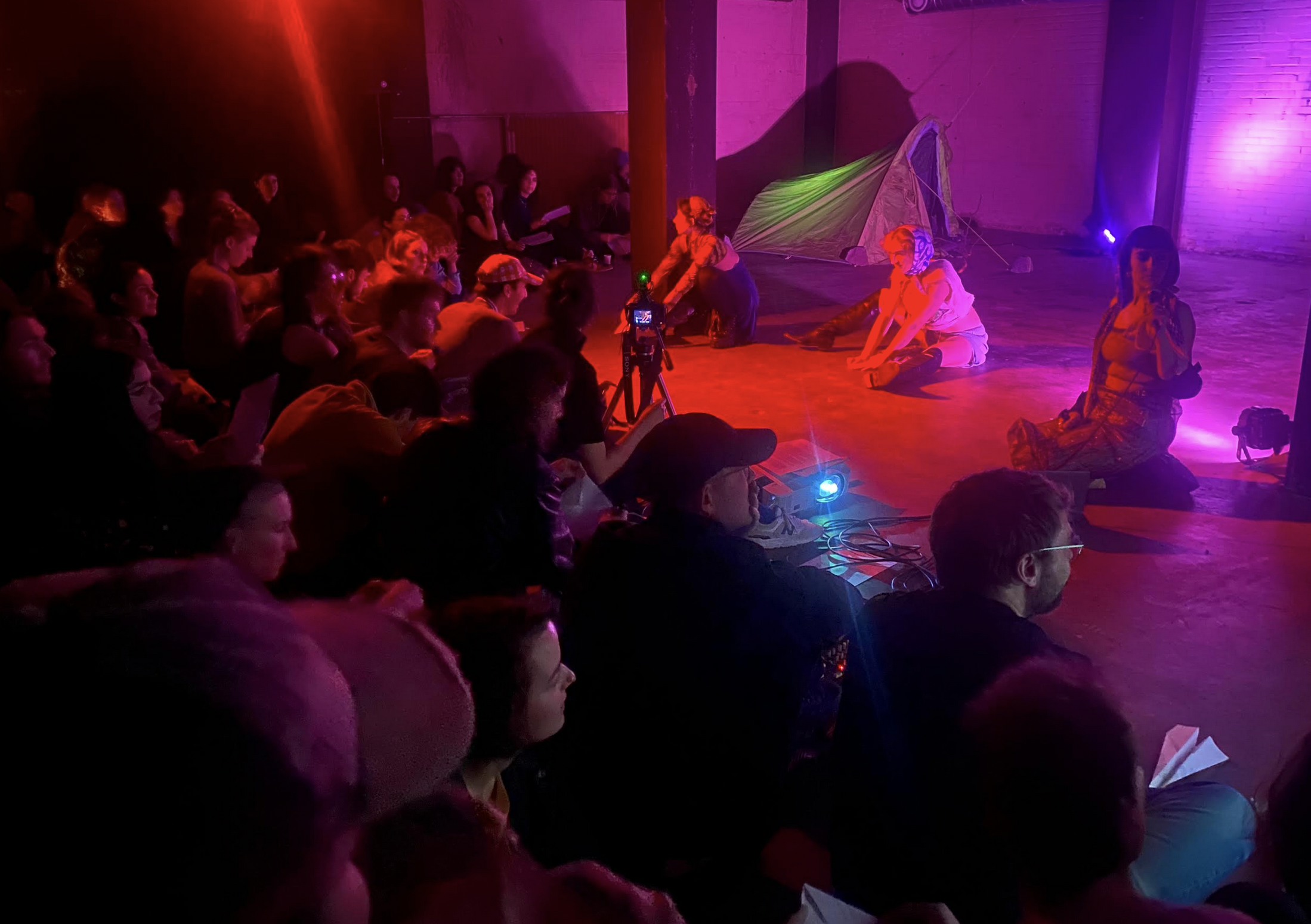Rotterdam council closes funding door on TimeWindow
Zuza Nazaruk
TimeWindow has been providing shared studio space for some 50 Rotterdam-based performance artists for the past nine years. But the city council’s decision to halt its funding means the future is uncertain, despite having a strong track record.
German national Jette Schneider moved to Rotterdam from Germany 27 years ago to pursue dance studies at the Codarts Academy and ended up cofounding TimeWindow in 2015.
“In Germany, the art institutions are very different,” she says. “I graduated in 2001 and got stuck in Holland. By then, Rotterdam was still very rough, which had an effect on the people. Their vividness made me stay. I fell in love with the city, its roughness, craziness. It was an environment that supported creative entrepreneurial thinking, taking your own initiative, and thinking in possibilities, which I admire a lot.”
Collaborations beyond studios
Schneider was working at Danslab in the Hague when she met Judith Schoneveld, her partner in TimeWindow, who was working in the same building for Theater Zeebelt. “We both said it was time to start something in our city,” she says.
“Why do we have to immediately look to Amsterdam or even internationally, with the assumption that there are no interesting dancemakers in Rotterdam? As institutions, we have to facilitate artists in their own city.”
That realisation led to talks with the city council and 1300m² of work and rehearsal space, in the Rotterdam ZOHO area. “People in the municipality opened doors and possibilities for us, found money to support us in pursuits that weren’t only artistic, for example, in researching how we make an initiative like TimeWindow sustainable,” she says.
Artists who are part of TimeWindow rent a studio space. But they also participate in discussions on future plans, propose events and activities, and take care of managerial and curatorial tasks in subgroups.
One group deals with subsidies, another with PR, yet another puts the programme together. They get paid for each of these activities. Schneider explains that this is the core of creating sustainable artistic communities – “you need to value people’s contributions into community collaboration in economic terms.”
Uncertain future
A few times of the year, TimeWindow opens its doors to the outside public. All members can share their work during a yearly festival, which usually attracts a young public. It isn’t a theatre or a presentation space, Schneider explains, “and that impacts how the event feels. We have a public coming in that maybe wouldn’t go to a theatre.
Yet despite nine years of functioning, the council’s culture commission recently decided not support the organisation with funding. The decision puts a question mark on Time Window’s entire future. It’s not just TimeWindow that’s in trouble – Rotterdam’s culture chief Said Kasmi has said the city’s whole arts and culture scene is in a transition phase.
“I don’t think we’ve ever been faced with such big challenges,” says Schneider, even in 2011 when former culture minister Halbe Zijlstra slashed funding across the board.
This time, it’s not only about money. “This transition ambition is great, but it’s not going so well,” she says. It is hard to value long-term investments, change, and impact well, especially if progress is mainly judged in quantitative terms, she says. “I am afraid that the bigger institutions only get bigger and the smaller ones shrink.”
Thank you for donating to DutchNews.nl.
We could not provide the Dutch News service, and keep it free of charge, without the generous support of our readers. Your donations allow us to report on issues you tell us matter, and provide you with a summary of the most important Dutch news each day.
Make a donation